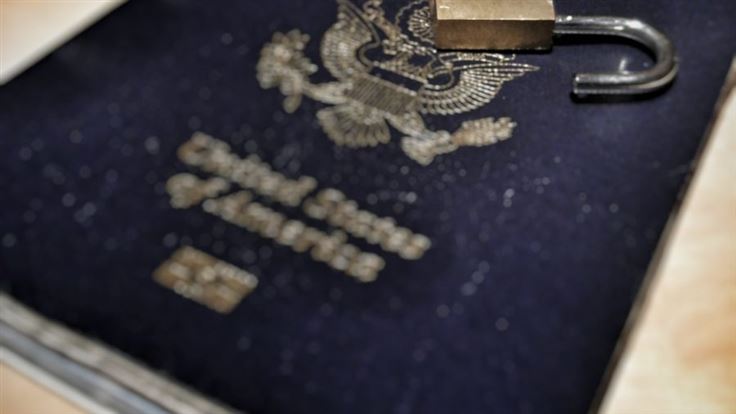A US diplomatic mission in Nigeria warns of a visa scam affecting Nigerian citizens looking to move to the United States. It’s an old scam message, dressed up with a fresh coat of paint. Shall we take a look?
Work visa scams are a solid fixture in the scammer’s toolkit. This one blends the pandemic, data harvesting, and a slice of bank account emptying. There’s several variations of the scam, but they follow the same pattern.
The fake e-visa press release
No matter which version you’re looking at, the bogus press release begins as follows:
President Joe Biden, the 46th U.S. President has signed an Executive Order that interested citizens of the Federal Republic of Nigeria who measure in some special professions are eligible for American work E-visa and residence permit. This was communicated to the Nigerian Mission in the United States by the U.S. Department of Immigration.
The terms of the Executive Order allow 25,000 citizens of the Federal Republic of Nigeria between the age of 35 to 55 whose area of expertise are among the following: 1. Health workers, 2. engineers, 3. marine workers, 4. civil servants, 5. business administrators, 6. accountants, 6 [SIC]. lecturers, 7. those with special skills.
The official warning from the embassy warns the target age range is 40 – 55, whereas the example above focuses on those between 35 – 55. There is yet another version discussed here, focusing on potential victims aged between 25 – 55.
Promoting a scam
There’s almost certainly more versions of this scam in circulation by email. The example given by the embassy is a screenshot of a fake press release posted to Instagram. We’ve also discovered another version, again posted to Instagram from another account.
In both cases, the accounts claim to be involved in (or offering) some form of immigration service(s). For other versions of the fake press release, they follow the same template changing details relevant to the scammer’s own interests.
What are they asking for?
No matter who is sending the individual scams, the data they ask for is pretty standard across the board. They want potential victims to either hand over certain documents, or follow some crucial steps:
- Passport biodata pages, with “at least 6 months left before expiry date”. A work resume. A passport photograph. Government-issued ID if available. This is classic data harvesting for identity theft or social engineering.
- The “brush off”. They claim that if potential victims haven’t heard back after 2-3 business days they should forget the whole thing. The visa won’t be headed their way, and they should simply wave goodbye to the money paid to apply.
- A warning that potential victims shouldn’t tell anyone they’ve applied may set off alarm bells for some, but not everyone. “Applicants must go about their applications themselves without involving any third parties such as travel agents, family members living in the United States, or any other delegates”. This is simply so people with more knowledge of procedure don’t declare the whole thing one big scam.
- A payment of $250 for an “English proficiency test”. They also ask for a further $150 for “Covid screening” if applicants have not yet had a COVID-19 vaccination.
- A deadline. The “Press release” claims to have been signed in February or March depending on which version is on display. All of the ones we’ve seen so far claim the application deadline is the 30th of April, 2021. Is this offer too good to be true? Better hurry up and submit those fees and find out before the opportunity is lost! This is a time-honoured pressure tactic, dusted off and reused once again.
Turning a profit on false hope
This is an awful scam, and the people behind it don’t care about the fallout for victims. They even try and make some additional cash from the pandemic. You can bet that once April 30 passes, new versions will be released with May or June listed as the new cut-off point. We’ve covered the occasional visa scam previously, and they can have serious consequences for people caught in the trap.
If you’re unsure about too-good-to-be-true visa announcements, stick to official sources. Anyone can claim to be anything on social media platforms and mailbox missives. Major changes will have major coverage, and you can always contact the relevant embassy directly in a worst case scenario.










